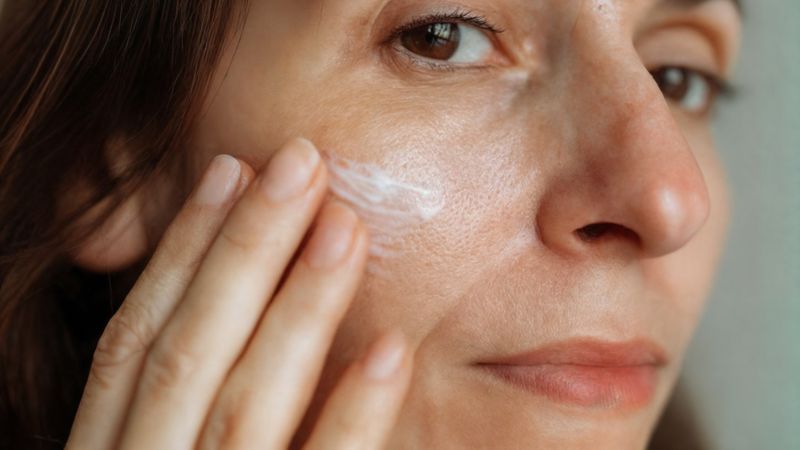Discover your molecular profile: a gentle introduction to MOLEQLAR’s EPI-Proteomics Test

Have you ever wondered how your day-to-day habits—like what you eat, how often you exercise, or even how much stress you carry—actually shape your body at the molecular level? We often hear that diet and lifestyle can affect our health, but connecting those dots can feel vague or distant. That’s where MOLEQLAR’s EPI-Proteomics Test comes in, offering a closer look at „your molecular profile” by measuring the proteins inside your cells. By highlighting trends in everything from vitamin turnover to your body’s pace of aging, this test can serve as a helpful guide when you’re aiming for a healthier, more balanced life.
A fresh perspective on biological age
Traditional tests might focus on DNA methylation to estimate biological age, but the EPI-Proteomics Test uses a different approach. Instead of zooming in on genetic “volume controls,” it analyzes the proteome—the total set of proteins in your cells at any given moment. Why does that matter? Proteins reflect the real-time state of your body. They can shift quickly with changes in diet, stress levels, and exercise habits, offering a dynamic snapshot of how your lifestyle translates into concrete biological effects.
What is ProteoAge?
Imagine looking beyond the simple tally of birthdays and peering into the microscopic world where your cells actually ‘live’ and ‘work.’ That’s precisely what ProteoAge measures: how old your body is on a molecular level, rather than on a purely chronological one. By analyzing thousands of protein signals, it becomes possible to determine how effectively cells are functioning at any given moment. Two people might share the same birth date, yet the one with a lower ProteoAge could feel more energetic, stay active longer, and generally enjoy better vitality. By understanding your ProteoAge, you gain a clearer picture of your inner fitness—empowering you to shape your lifestyle in a way that supports a healthier, more resilient you.
Similar in principle, different in practice
Epigenetic tests commonly rely on methylation patterns in blood or saliva to gauge how lifestyle factors affect aging, whereas MOLEQLAR’s EPI-Proteomics Test measures proteins in cheek cells. The principle is broadly alike—unhealthy habits can raise your “age” while healthier routines tend to lower it—but the specific metrics and analytical methods differ. Although the results aren’t directly interchangeable with those from DNA methylation tests, both approaches can shed light on whether your day-to-day choices are boosting or undermining your molecular well-being.
Why proteomics? Think of it like your personal garden
Imagine your body as a thriving garden, where your genes act as seeds holding the potential to grow into various types of “plants.” Proteomics represents the actual garden at any given moment: which plants are sprouting, how robustly they’re growing, and how they respond to changes in sunlight, water, or soil quality. This real-time view reveals how factors like your diet, stress levels, and exercise habits help certain plants flourish—or cause weeds (negative processes) to spread.
Epigenetics meets proteomics: why your daily choices matter
In this garden, epigenetic processes are like the gardener, deciding how much water, fertilizer, or shade each seed receives. If you’re sleep-deprived or frequently stressed, the gardener may unintentionally favor “inflammation” or “stress-response” plants, letting them crowd out the healthier growth. On the other hand, a balanced lifestyle—including regular workouts and nutrient-rich meals—can encourage more robust “muscle repair” or “energy metabolism” plants to thrive.
By measuring which “plants” are actually present and active, proteomics shows the direct outcome of these epigenetic gardening choices. Over time, consistent care steers your garden toward a flourishing landscape, while neglect or poor habits can leave it wilted and overrun. Essentially, epigenetics sets the guidelines on how seeds can develop, and proteomics captures how those guidelines play out—offering a clear snapshot of your health at the cellular level.
What the test reveals
Biological age & pace of aging
Through thousands of protein measurements in your cheek swab, the EPI-Proteomics Test estimates both your biological age and the speed at which you’re aging. This data offers insight into whether your lifestyle choices might be speeding things up—or, ideally, slowing things down.
Nutritional health score
Proteins shift in response to what you eat. By measuring specific markers tied to macronutrients (like carbohydrates, fats, and proteins) and micronutrients (like zinc or vitamins A and D), the test provides a Nutritional Molecular Score. The score indicates how closely your diet aligns with healthier patterns, guiding you toward small yet effective tweaks if you’re off-track—such as cutting down on sugary drinks or increasing vegetable intake.
Sport & activity insights
If you’re curious about whether your exercise routine is pushing you closer to a “healthy” zone or whether you could benefit from a broader range of activities (like more strength training or extra rest days), the test’s Sport Molecular Score can help. It compares your proteomic markers against those of individuals with varying degrees of physical activity and suggests ways to refine or expand your routine.
Detailed biomarkers
Beyond giving you an overall health score, the EPI-Proteomics Test pinpoints specific protein markers linked to:
- Vitamin E turnover: Adequate vitamin E utilization helps protect cells from oxidative stress—a factor that can accelerate the aging process.
- Cholesterol metabolism: Efficient cholesterol handling promotes cardiovascular health, which in turn supports a slower pace of biological aging.
- Sirtuin expression: Sirtuins govern key processes like DNA repair and metabolic regulation, making their balanced activity crucial for healthy aging.
- Inflammatory response: Keeping inflammation in check helps prevent chronic stress on the body, which can hasten age-related decline.
- Sugar regulation: Stable blood glucose levels reduce metabolic strain, potentially slowing down the cellular wear and tear that speeds up aging.
- Immune activation: A well-tuned immune system fends off illness and maintains tissue health, both of which contribute to healthier aging overall.
- And more…
Molecular insights, not a medical diagnosis
It’s important to note that this test doesn’t diagnose medical conditions. Instead, it acts like a map—helping you see how your current lifestyle choices may be shaping your unique molecular landscape. With that information, you can decide if you want to adjust your habits, whether by incorporating more plant-based meals, tweaking your workout schedule, or focusing on better sleep hygiene.
Taking the test: a simple cheek swab
Some tests rely on blood samples to measure broad markers. By contrast, the EPI-Proteomics Test uses a non-invasive cheek swab. Scientists then analyze thousands of proteins from your buccal cells using advanced mass spectrometry techniques. Because these proteins reflect day-to-day changes, re-testing after a few months can show whether your new dietary or fitness routines are indeed making a difference at the molecular level.
Personalized results and actionable advice
Your test results don’t just stop at numbers. You’ll receive:
- Scores for both nutrition and activity, comparing your results to a wider population.
- Suggestions on improving aspects of your daily life (e.g., lowering processed meat intake, trying new exercise forms, or balancing vitamin levels) based on how far your markers deviate from a healthier range.
This structured feedback aims to inspire realistic, incremental change—rather than overwhelming you with drastic, unsustainable goals. Achieving long-term well-being often involves modest steps that gradually shift your habits in a more positive direction.
Discover your personal hallmarks of aging
Imagine wrinkles and slowing reflexes as just the “cover story” of growing older. Behind the scenes, there’s a rich tapestry of twelve distinct cellular processes—from DNA stability and nutrient sensing to how your cells dispose of everyday “trash”—that all play roles in how quickly (or slowly) your body shows signs of wear. These interconnected mechanisms are collectively known as the hallmarks of aging.
The good news? MOLEQLAR’s EPI-Proteomics Test goes beyond measuring your ProteoAge: it also offers a personalized glimpse into these hallmarks, helping you see which areas might need extra support. By exploring these molecular “checkpoints,” you gain a deeper understanding of what keeps you feeling energetic and resilient—and how small, science-backed changes in your daily routine might help slow the clock on aging.
Compound biomarkers: a more robust approach
While many tests focus on single proteins as standalone indicators, MOLEQLAR introduces the concept of compound biomarkers for deeper, more reliable insights. Rather than relying on individual protein measurements in isolation, multiple proteins are pooled and cross-validated to form a more comprehensive data set. This methodology applies not only to specific biomarker categories but also extends to ProteoAge and the hallmarks of aging. By analyzing clusters of data points rather than single markers, the resulting information offers a more accurate reflection of overall cellular function—ultimately making test results more meaningful for users.
A small, yet significant step toward healthier aging
- Non-invasive sampling: No blood draw required.
- Comprehensive data: Thousands of protein markers analyzed.
- Lifestyle focus: Nutrition, activity, and overall well-being rather than clinical diagnoses.
- Custom recommendations: Real-world tips to help you align your daily habits with your cells’ needs.
For anyone wanting a more concrete roadmap to a healthier life, the EPI-Proteomics Test can be a valuable checkpoint. It provides the “why” behind simple lifestyle changes and sets measurable milestones for you to hit along the way.
Final thoughts
Understanding your body at the protein level can transform how you view your current habits—revealing whether you’re steadily nurturing your future health or inadvertently undermining it. By marrying complex lab science with practical feedback, MOLEQLAR helps to discover „Your molecular profile“ with a EPI-Proteomics Test, which may guide you toward the small, consistent lifestyle adjustments that could yield big benefits down the road.
Disclaimer: This advertorial is for informational purposes only and does not substitute medical advice. The EPI-Proteomics Test provides insight into lifestyle and biological patterns but is not designed to diagnose or treat any medical conditions. Always consult a qualified healthcare professional before making significant changes to your diet, exercise routine, or supplement regimen.
References
Author: Volker Blasek
Volker Blasek is a technical editor with a background in horticulture, fueled by a volunteer year on an organic farm. His passion for nature and conservation, paired with his expertise in psychology and science, shapes his engaging and thoroughly researched content. As a medical editor, he has authored over 3,000 articles on topics such as nutrition, diseases, symptoms, naturalopathy, and home remedies, delivering insightful and accessible reporting for a wide range of audiences.




